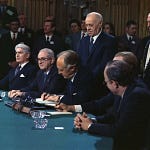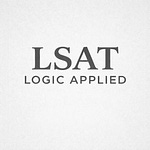On this day in legal history, August 1, 1833 the British Empire abolished slavery with the passage of the Slavery Abolition Act. Put differently, despite huge shortcomings to the act and its enforcement, the empire probably responsible for the most death and destruction worldwide got the message regarding the atrocities of slavery about 3 decades prior to the United States, which is pretty damning.
The Slavery Abolition Act was passed by the British Parliament on August 29, 1833, and came into effect on August 1, 1834. It marked a significant milestone in British history by abolishing slavery in most parts of the British Empire, including the Caribbean, Mauritius, and South Africa. The Act did not cover the territories controlled by the East India Company, such as Ceylon (now Sri Lanka), and some other exceptions.
The passage of the Act was the result of years of campaigning by abolitionists, including prominent figures like William Wilberforce. The legislation provided for compensation to slave owners, allocating £20 million for this purpose (a considerable sum at that time), while former slaves received no compensation–a glaring oversight that betrays the motivations for abolition. Many former slaves were placed into an "apprenticeship" system, which tied them to plantation work for a number of years, effectively prolonging their servitude.
The Act also provided for the establishment of the British African Squadron, charged with patrolling the West African coast to suppress the Atlantic slave trade. This naval force was instrumental in enforcing the ban on the slave trade, intercepting illegal slave ships, and freeing those enslaved.
The Slavery Abolition Act of 1833 stands as a landmark piece of legislation, reflecting a broader shift in social attitudes and moral perspectives on human rights and personal freedoms. While it officially ended slavery within the British Empire, the legacy of slavery continued to impact the descendants of those who had been enslaved, and the transition to freedom was fraught with difficulties and injustices.
A bipartisan group of 58 U.S. House members is urging the Biden administration to allow applicants stuck in green card backlogs to apply for permanent residency at the beginning of the new fiscal year. This move would ensure that all available green cards are utilized annually, providing interim relief such as increased employment flexibility and travel freedom while applicants await their green cards. Representative Raja Krishnamoorthi, one of the main signatories, highlighted the bureaucratic delays in the legal immigration system that hamper the economy and leave families in uncertainty.
While the lawmakers' proposal would not alter the 140,000 annual cap on employment-based green cards, it would streamline the process and prevent green cards from going unused, as over 194,000 have in the past two decades. The proposal also has precedent from the George W. Bush administration. The measure would provide multiple benefits to immigrants, such as job mobility and protection for dependent children's legal status. Both the State Department and Department of Homeland Security have not officially commented on the proposal at this time.
Lawmakers Push Biden for Earlier Green Card Applications (2)
Justice Samuel Alito has laid the groundwork to challenge court financial disclosure rules, suggesting that no provision in the Constitution gives Congress the authority to regulate the Supreme Court. This could potentially lead to scrapping the 1978 Ethics in Government Act requirement that justices file annual financial disclosure reports, which include information about outside teaching and book income, spousal workplace, reimbursed travel, and major debts and investments. Alito, along with others, argues that the justices are not bound by this law, having only followed the disclosure statutes that apply to lower-court judges and executive-branch officials voluntarily.
The article outlines a potential scenario where a lower-court judge might file a suit to overturn the law, claiming it's unconstitutional under separation-of-powers principles and burdensome. The scenario also includes possible support from Chief Justice John Roberts and Justice Clarence Thomas. If successful, this move could further exempt the Supreme Court from accountability measures, including gift and travel disclosures, and recusal rules, making the court completely unaccountable. The author of the article, executive director of Fix the Court, warns against allowing this to happen and emphasizes the importance of transparency and accountability in the federal courts.
Alito Lays Groundwork to Scrap Court Financial Disclosure Rules
Samuel Alito, the Supreme Court’s Plain-Spoken Defender - WSJ
Walt Disney Co. and NBCUniversal are closely monitoring a bill in New York that could bar them from utilizing a state tax break if they use artificial intelligence (AI) to replace workers in their film and TV productions. Albany-based lobbyists for both companies began tracking the legislation (S.B. 7422) when it was introduced in June 2023. Neither company has publicly stated their stance on the proposal, but they could lose millions in future savings if the bill is approved. Assemblyman Demond Meeks, the bill's sponsor, believes that it could put New York at the forefront of maintaining workers' dignity amid fears of AI taking over jobs. Hollywood, particularly Disney and NBCUniversal, has shown increasing interest in AI, with Disney expressing its enthusiasm about the technology's potential. NBCUniversal has already received $96.7 million in state tax credits since 2022, and Disney has received $10.9 million for specific productions. Representatives of both companies have downplayed the significance of the bill, although they are keeping tabs on it, and the situation might change by the next legislative session.
Disney and NBC Eyeing New York’s AI Tax Break Ban Proposal
And up ahead in the road there is something pulled over in the shoulder. It has LED headlights and looks like pseudo-futuristic stylizing. What can it be? Ahh yes, my column on the broken EV tax credit system.
Electric vehicles (EVs) are currently facing a supply and demand imbalance, leading to a surplus of EVs on dealer lots. This shift is partially due to the EV tax credit system, which as it stands, severely restricts lower-income households from reaping the benefits. The credits are nonrefundable and tied to the amount of federal income tax liability for the purchase year, thereby making the full $7,500 credit inaccessible for many. Compounding the problem is the fact that these credits are available only once every three years, causing potential buyers to delay their purchase until they can avail the full credit.
Further, the introduction of new vehicle restrictions pertaining to critical mineral and battery component sourcing has added to the complexity. These requirements mandate a certain percentage of metals used in EV batteries to be extracted or processed in the U.S. or a country with a U.S. free trade agreement. Currently set at 50% for 2023, these regulations have disqualified a significant number of affordable EVs. As a result, a new battery recycling industry has emerged, which could potentially hinder the supply chain. Furthermore, the slowing pace of EV adoption could lead to a future depression in the market for used and recycled batteries. I conclude by advocating for a complete reevaluation of America's stance on the electrification of roadways. To make a successful transition away from the fossil fuel industry, policy changes are needed to ensure tax credits and regulations fully support this goal without unnecessary compromises or job creation agendas.
We Need a Functional EV Tax Credit System Backed by Sound Policy













